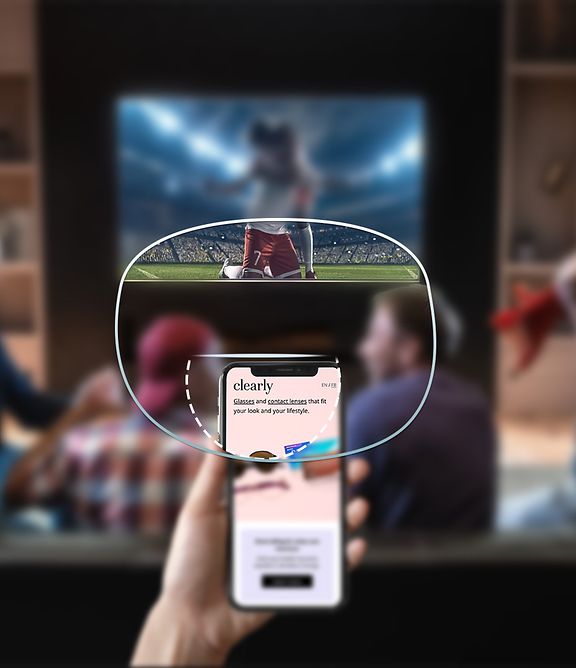Free shipping on all contacts orders and on glasses orders $99+
Progressives
One pair for all distances. Progressive lenses provide near, intermediate, and far vision within one lens (with no visible line on the surface of the lens).
Free shipping on all contacts orders and on glasses orders $99+
Members Exclusive is on! Sign up for 20% off all contacts
Members Exclusive is on! Sign up for up to 30% off Ray-Ban, Oakley & more

Multifocal lenses
One pair for all distances. Progressive lenses provide near, intermediate, and far vision within one lens (with no visible line on the surface of the lens).
Designed for screen time. Our Computer Progressives provide correction for intermediate and reading distance along with blue-violet light filtering.

Bifocals provide near and far vision correction, with a visible line across the surface of the lens that divides two prescriptions.
We do not currently offer bifocal lenses
Sunglasses
Reduce glare, preserve colour and clarity. Polarized sunglasses provide UV protection and make it easier to see clearly in bright conditions. Available in stylish tints and colours.
Protect your eyes in style. Get UV protection in a style that suits your aesthetic and routine. Choose a solid, gradient, or mirrored finish to customize your own pair.
Get the lenses you need and a style you love
At Clearly, we don't currently offer a re-lensing service. However, we offer a wide variety of frames, starting at $9, and free shipping over $80.
Some independent optical stores may be able to replace lenses in frames, but it will depend on the condition of the frames, their size, shape, curvature, your prescription, and the lenses that you choose.
While all lens manufacturers offer a wide range of lens materials, the best lenses for you will vary according to your lifestyle, frames, and prescription.
Those who have a high prescription will typically benefit from high-index lenses, as they will offer the thinnest solution while providing the highest-quality vision correction.
If you have a low prescription, you'll want to decide what your priorities are. High-index lenses are the 'best' quality, but tend to be more expensive than low-index options.
Kids and sporty folks might want to choose polycarbonate lenses, because they're impact-resistant. They're thinner than the standard plastic lens, but thicker than high-index plastic lenses. For rimless glasses, which have no protection from the frames, you should consider mid-index or high-index plastic lenses for better durability.
If you need help or advice on which lenses are best for you, reach out to our 24/7 customer service team via chat, email, or phone.
When comparing glass to plastic lenses, weight and durability are the main concerns. Glass lenses can be roughly three times as heavy as plastic lenses and of course, glass lenses can break easily. For these reasons, actual 'glass' being used for glasses is relatively rare in today's eyewear industry. Clearly does not offer glass lenses for the reasons above.
Plastic lenses are lighter than glass lenses, making them easier to fit in any type of frame and more comfortable to wear throughout the day. They are more durable and more impact-resistant, and less reflective than glass. Since plastic is susceptible to scratches, you’ll need a scratch-resistant coating to prevent scuffs and marks. Plastic lenses come in a variety of different specifications and thicknesses, depending on your vision needs.